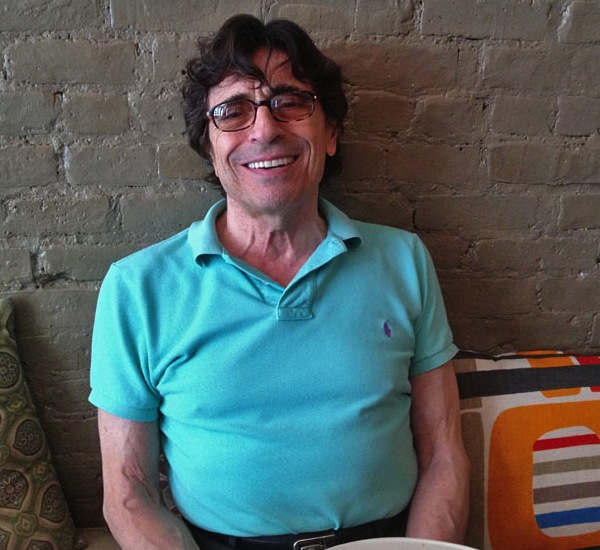Dance Feature: Edward Villella Takes to the Ice
Reveries, the ice ballet that audiences will get to see in a special benefit performance this weekend is Edward Villella’s translation of balletic structures and forms into contemporary figure skating technique.
Ice:Dance by Ice Theatre of New York, at the Skating Club of Boston, 1240 Soldiers Field Road, Boston, MA., on October 19 at 7:30 p.m.
By Debra Cash
He was, in his time, one of the handful of great American-born male ballet dancers.
A&E Revue: Edward Villella from Lalita Khosla on Vimeo.
In 1958, Edward Villella appeared on a television special called Dancing is a Man’s Game. Part of an ongoing — and in some sense, still unfinished — project of trying to convince Americans that dancers should be honored as athletes and that male dancers could be virile (read: straight, as Villella was and is), the special was hosted by movie star Gene Kelly and included performances by baseball great Mickey Mantle, boxing great Sugar Ray Robinson and football great, Johnny Unitas. The male figure skater on the program had won the Olympics in 1948 and 1952 and had landed the first triple jump of any kind. There was no question he was an athlete, even if some still doubted that figure skating should be considered an art form.
The skater’s name was Dick Button, later to known to generations of ice skating fans for his on-air skating commentary. (Button, now an advocate for people who have experienced brain injury, has also been immortalized in a drinking game which no man or woman with any sense should try at home.)
Recently, Button and Villella had dinner together. In the intervening years, the ballet dancer had performed for George Balanchine and Jerome Robbins as a star of New York City Ballet, written an autobiography, founded Miami City Ballet, and was awarded a Kennedy Center honor. After reportedly being ousted from Miami by some of the company’s powerful donors in 2012, the man from Bayside, New York, moved back to the city.
Dick Button was not Villella’s only connection to the world of championship figure skating. He met the woman he would marry, Linda Carbonetto, the 1968 Canadian National Figure Skating Champion, in 1977 while he was choreographing an ice ballet for a Dorothy Hamill television special. But Villella hadn’t done any skating choreography since then. Button encouraged him to give it another go.
Reached in Sun Valley, Idaho, the day after his 77th birthday, Edward Villella explained that skating wasn’t his usual vocabulary, and competitive skating “where everything is prescribed, it’s trick after trick.” He was intrigued enough to meet with Doug Webster, artistic director of the Ice Theatre of New York. Founded in 1984 by Moira North, Ice Theatre of New York takes a sheet from the playbook of late ice dance pioneer John Curry, commissioning work for mainstream modern dance choreographers including David Dorfman, David Parsons, Lar Lubovitch, and Ann Carlson. (Personally, I will never forget the impact of Laura Dean’s exhilarating experiment into ice for Curry’s troupe, Burn)
Classical ballet? That is another matter: if it’s going to work for a theatrical presentation skated by an entire ice dancing company, it has to be more than Johnny Weir’s admirable-and-out-there Dying Swan (amusingly, this video has Button throwing some dance history factoids into the broadcast: he knows his stuff).
Reveries, the ice ballet that audiences will get to see in a special benefit performance at the Skating Club of Boston this weekend is Villella’s translation of balletic structures and forms — a central pas de deux couple, Kim Navarro and Brent Bommentre, surrounded by four other couples — and themes — a male poet’s search for a female muse — into contemporary figure skating technique, taking particular advantage of “the gorgeous and beautiful thing” of landing and gliding.
Tipping his hat to his mentor, Villella reworked the Tchaikovsky Orchestral Suite No. 3 in G Major that Balanchine had used for Elegie. Collaborating with Webster Villella says “was so much fun!”
“Balanchine was the master of all masters,” Edward Villella avers. “Those of the ballet world will recognize the references to our world in Reveries‘ manner and style.”
Debra Cash has reported, taught and lectured on dance, performing arts, design and cultural policy for print, broadcast and internet media. She regularly presents pre-concert talks, writes program notes and moderates panels and events sponsored by World Music/CRASHarts, Wesleyan Center for the Arts and venues throughout New England. A former Boston Globe and WBUR dance critic, she received a 2012 Creative Arts Award from the Hadassah-Brandeis Institute for a new poetry project.
c 2013 Debra Cash

